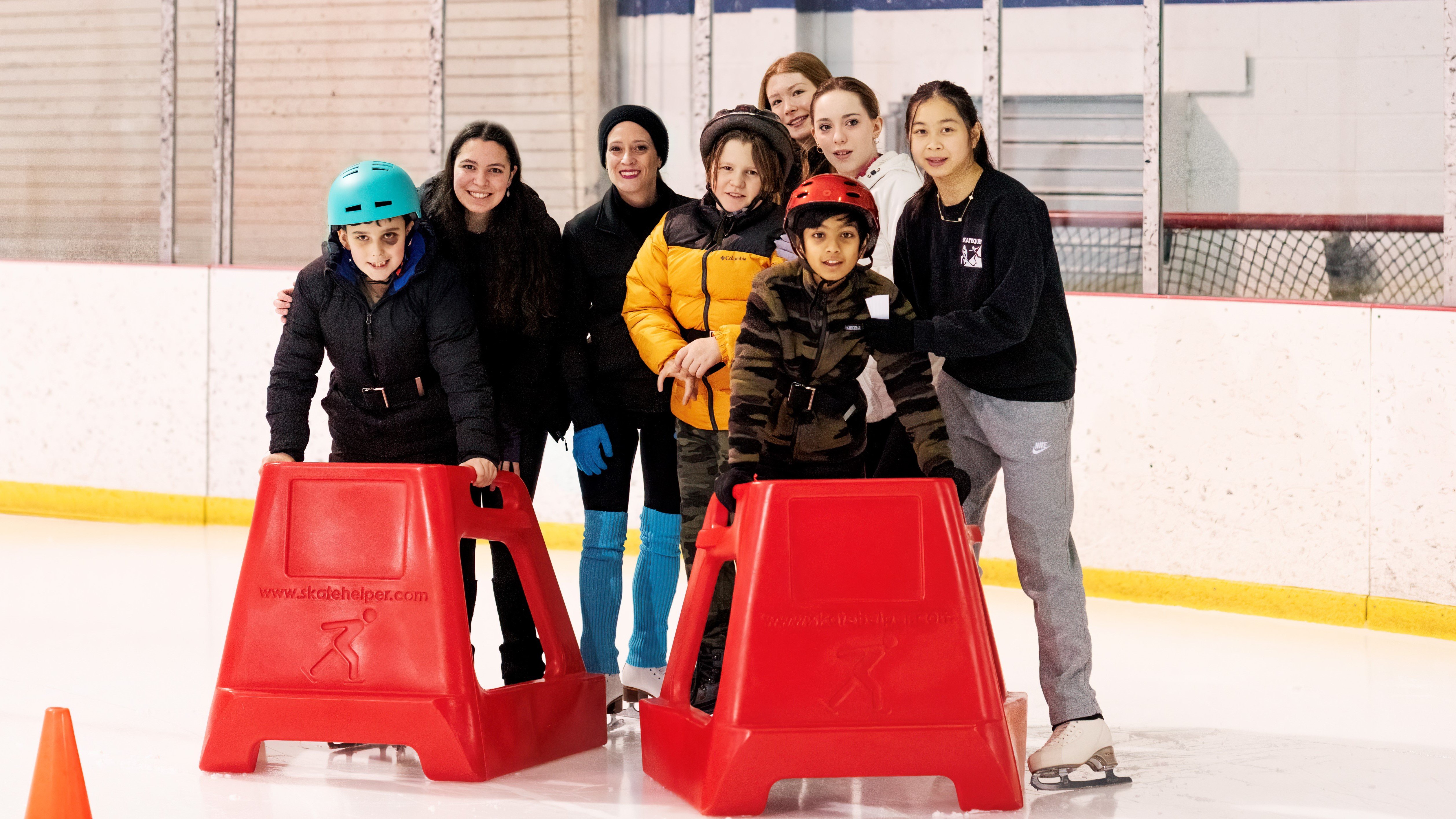Above Photo Credit: Kristen Abraham
By Courtney Fecske
This story appeared in the April 2024 issue of SKATING magazine. Click here to purchase a subscription.
Roseanne Downward, an occupational therapy student at Shenandoah University and an adult figure skater in Virginia, set out to combine her love of skating and professional knowledge by starting an adaptive skating program.
Downward turned her plan into reality in February while collaborating with Margarita Montalvan, events director of SkateQuest in Reston. Montalvan supported starting a program, as the rink has always prioritized creating an inclusive and welcoming environment for all.
“I used the U.S. Figure Skating adaptive skating manual as a starting point,” Downward said. “I also reached out to the local state Special Olympics, which helped us determine that having the program on Saturdays would be most convenient for families. To help recruit skaters, I contacted other nearby adaptive sports programs.”
As an occupational therapy student, Downward knew that she would need a higher than usual ratio of volunteer coaches and Montalvan had skaters who were enthusiastic to assist with the program. Downward created and led a training that focused on disability education about common health conditions and tips on how to support skaters with disabilities.
To modify the skaters’ environment, Downward used gate belts to help with balance and reduce fall risk, as well as required safety equipment like knee pads and helmets; these changes have given the skaters a sense of confidence.
Another support method that Downward uses for the skaters is a social story.
“The social story is used as a learning tool to provide visual and written examples when introducing skaters to the new environment,” Downward said. “Our adaptive skating social story included images of the SkateQuest rink entrance, ice surface and equipment to create familiarity and comfort.”
The skaters, Downward said, are proud that they have been able to accomplish something they previously hadn’t.
“Skaters have the opportunity to set a goal and maintain goal sheets focusing on reasonable and achievable personal goals,” Downward said. “An example of a goal is, ‘I will glide on the ice,’ or ‘I will stand by myself.’ These goals have been a great way to gain a sense of accomplishment and track progress.”
As the adaptive skating program is part of Downward’s capstone project, she reviews the goals to find trends and determine whether skaters are improving skating skills and physical activity and whether they look forward to coming to skate.
While the program is not specifically focused on therapeutic outcomes, Downward noted that people with disabilities have less opportunity to be physically active and participate in recreational activities in their communities.
“Offering adaptive skating programming provides an opportunity for community members with disabilities to be physically active, be involved in their community and form social connections,” Downward said.
The adaptive skating program has proven to be mutually beneficial, as Montalvan emphasized that the parents and skaters at SkateQuest have been supportive and welcoming toward the new adaptive skating program. The adaptive skating program has enriched the rink’s skating community while supporting increased skating opportunities.
Ice rinks, figure skating clubs and Learn to Skate USA® programs can start their own adaptive skating program. For questions on how to start an adaptive skating program, please contact memberservices@usfigureskating.org.
U.S. Figure Skating is proud to celebrate our diverse membership. Click here to share your story with us for a chance to be featured on U.S. Figure Skating’s website or social media channels.


